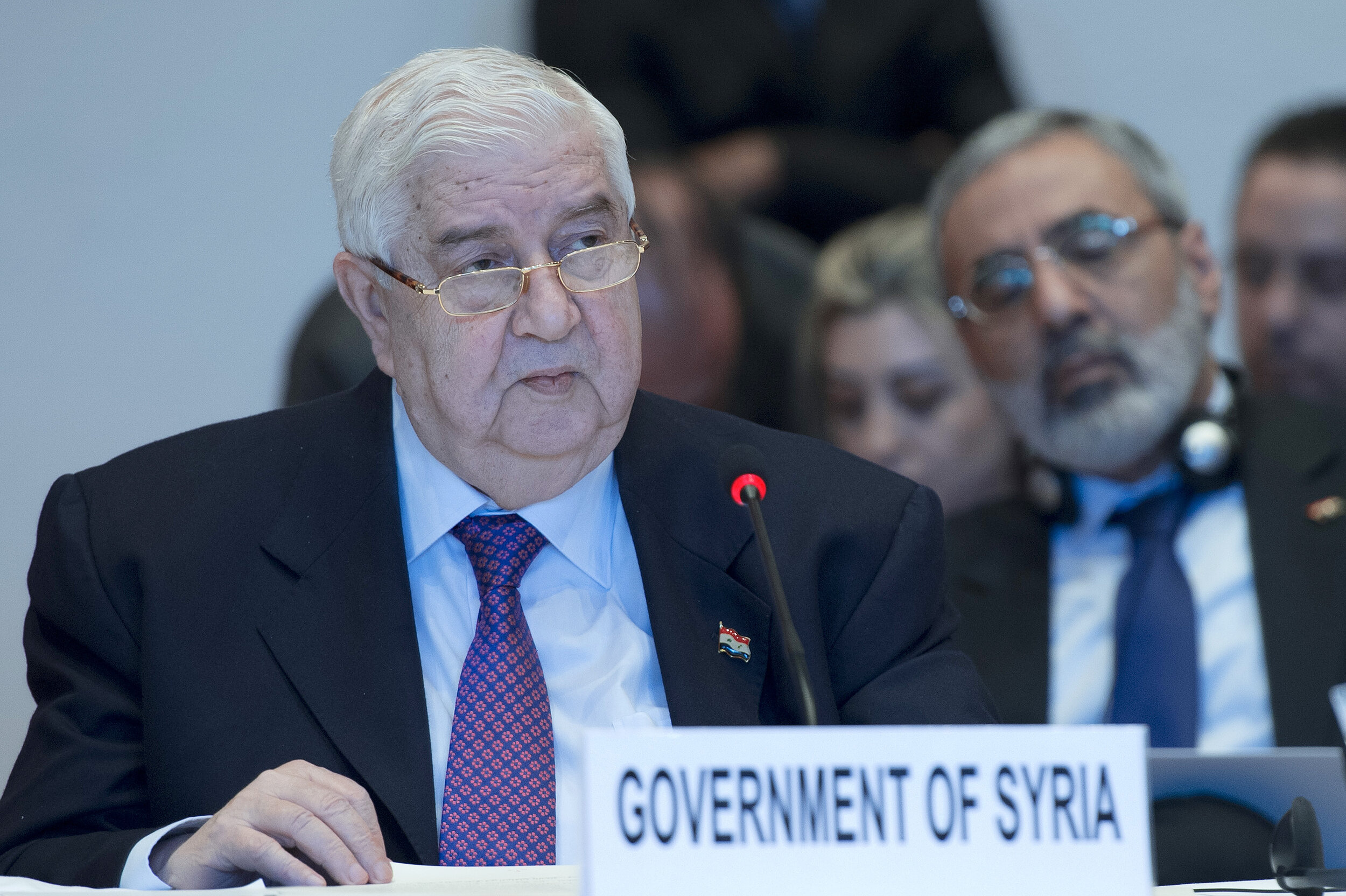Oman: The First Persian Gulf State to Return Its Ambassador to Syria
Syrian Foreign Minister Walid Muallem (Flickr)
Oman has become the first Arab state in the Persian Gulf to reinstate its ambassador in Syria after an almost decade-long hiatus. Syrian Foreign Minister Walid Muallem recognized the appointment of Omani Ambassador Turki bin Mahmood al-Busaidy on October 4.
Oman withdrew its ambassador from Damascus in 2011 following the Syrian government’s response to an uprising that would later evolve into the Syrian Civil War––a conflict that continues to this day. Though most Arab countries cut ties with Syria over Syrian President Bashar al-Assad’s crackdown on the 2011 uprising, Oman was a rare exception, refusing to sever diplomatic relations and contradicting the wishes of the U.S. and its Arab Gulf allies.
Since the Arab diplomatic exodus from Damascus in 2011, a handful of other Gulf states have made similar efforts to rekindle relations with al-Assad’s government. In 2018, the United Arab Emirates re-opened its mission and Syria, returning its charge d'affaires to the capital. Bahrain promptly followed in the Emiratis’ footsteps, announcing its embassy in Damascus was fully operational the following day. While the Kuwaitis have not gone as far as Abu Dhabi or Manama to restore relations with Syria, they have stated a willingness to re-open their mission pending an Arab League agreement.
Oman decided to become the first Persian Gulf state to reinstate its ambassador in Damascus due to growing recognition in the region of the Syrian government’s increasingly favorable position in the country’s civil war. Considering Oman’s past commitments and stances, it makes sense that Oman, in particular, moved first to deepen diplomatic ties with the Syrians. Oman has had a long-standing commitment to diplomatic engagement––which includes its instrumental role in facilitating the 2015 Iran Nuclear Deal––and it refused to pick sides in the Syrian Civil War––electing instead to offer humanitarian assistance..
Oman’s foreign minister expressed support for his country’s new ambassador to Syria, saying, “I wish him success in his work assignments and for the close brotherly relations between the two brotherly countries, more progress and growth.” Conversely, the U.S. response to Oman’s recent decision has not been favorable, as the country called upon other countries to refrain from restoring relations with Syria and pursuing greater economic ties. A State Department spokeswoman charged that al-Assad’s regime “represents a great danger to the entire region, including Oman,” and that normalizing relations would only serve to prolong conflict in Syria.
As Bashar al-Assad’s hand in the civil war steadily grows stronger with Iranian and Russian backing, Oman’s effort to normalize ties with Syria may influence other reluctant Arab countries to accept the shifting reality and restore their Syria relations to pre-2011 levels. U.S. opposition to such developments, however, may convince other Gulf states to think twice about sending diplomats of their own to join the Omani ambassador in Damascus.

